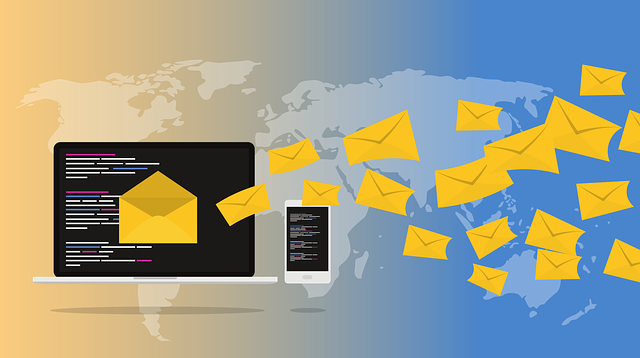An effective Managed Service Provider (MSP) marketing strategy is centered on personalized communication and client engagement tailored through CRM systems to meet individual needs. This approach involves proactive support and monitoring systems for early issue detection and resolution, ensuring clients' IT infrastructures perform optimally. By leveraging advanced technologies, MSPs can deliver customized solutions that cater to unique client challenges and objectives, fostering trust and partnership. Regular client check-ins reinforce the MSP's role as a trusted advisor, while automation tools streamline routine tasks, enhancing efficiency and service quality. Loyalty programs reward customer loyalty, incentivizing repeat business and positive referrals. These strategies collectively aim to retain clients by demonstrating a commitment to their satisfaction and adapting to their evolving preferences within the competitive MSP market landscape.
navigating the competitive landscape of Managed Service Providers (MSPs) necessitates a robust customer retention strategy. In this comprehensive guide, we explore five pivotal strategies that can fortify your MSP marketing strategy and solidify client loyalty. From personalized communication to advanced automation tools, these tactics are designed to enhance engagement, streamline service delivery, and ultimately drive client satisfaction and retention. Join us as we delve into the transformative power of proactive support systems, tailored solutions, strong relationship-building practices, and exclusive offers that not only retain but also grow your MSP’s client base.
- Leveraging Personalized Communication for Enhanced Client Engagement
- Implementing Proactive Support and Monitoring Systems
- Offering Tailored Solutions to Meet Unique Business Needs
- Fostering Strong Customer Relationships through Regular Check-Ins
- Utilizing Automation Tools for Efficient Service Delivery
- Creating Loyalty Programs and Exclusive Offers for Returning Clients
Leveraging Personalized Communication for Enhanced Client Engagement

In today’s competitive Managed Service Provider (MSP) landscape, crafting a robust MSP marketing strategy is paramount for client retention. A pivotal aspect of this strategy involves leveraging personalized communication to foster enhanced client engagement. By understanding and catering to each client’s unique needs and preferences, MSPs can create tailored messaging that resonates on an individual level. This approach not only differentiates the MSP from competitors but also signals to clients that their business is valued beyond mere transactions. Utilizing customer data and insights gained from CRM systems and feedback mechanisms, MSPs can deliver highly relevant and timely communications that address specific client challenges or celebrate milestones. This level of personalization not only improves client satisfaction but also reinforces the relationship, leading to higher retention rates and a more loyal customer base. In essence, by integrating personalized communication into their MSP marketing strategy, businesses can effectively elevate engagement and ensure that clients feel truly understood and supported, which is a cornerstone of successful customer retention efforts.
Furthermore, the effectiveness of personalized communication extends beyond mere messaging. It encompasses the timing and context of interactions, ensuring that communications are both relevant and considerate of the client’s operational pace. By aligning their MSP marketing strategy with a schedule that complements the client’s business cycles, providers can offer solutions and insights exactly when they are most needed. This strategic approach to engagement not only enhances the customer experience but also positions the MSP as a proactive partner, capable of anticipating needs and delivering value consistently. The result is a more engaged clientele, who are more likely to view their MSP as an indispensable component of their business operations, thereby increasing the likelihood of long-term partnerships and reduced churn rates.
Implementing Proactive Support and Monitoring Systems

In crafting an effective MSP marketing strategy, businesses must prioritize proactive support and monitoring systems as cornerstones of customer retention. These systems enable Managed Service Providers (MSPs) to anticipate and address potential issues before they escalate into larger problems that could lead to client attrition. By leveraging advanced monitoring tools, MSPs can keep a watchful eye on their clients’ IT infrastructure, ensuring uptime and performance that align with customer expectations. This proactive approach not only demonstrates reliability and dependability but also positions the MSP as a valued partner in their clients’ success. The benefits extend beyond issue prevention; these systems facilitate more efficient troubleshooting when issues do arise, thereby minimizing downtime and enhancing the overall client experience. In doing so, MSPs can differentiate themselves from competitors by consistently delivering high-quality support that is both responsive and forward-thinking. This commitment to proactive service excellence is a key component in building trust and fostering long-term relationships with clients, ultimately contributing to sustainable business growth within the MSP’s marketing strategy.
Offering Tailored Solutions to Meet Unique Business Needs

In crafting an effective MSP marketing strategy, offering tailored solutions that meet the unique business needs of clients is a cornerstone of successful customer retention. MSPs that invest time in understanding their customers’ specific challenges and objectives can position their services to address these nuances directly. By analyzing client data and feedback, MSPs can develop customized solutions that not only align with each business’s goals but also demonstrate an ongoing commitment to meeting their evolving demands. This bespoke approach fosters a sense of partnership and trust, which is invaluable in retaining clients over the long term. Moreover, these tailored solutions often lead to higher satisfaction rates, as clients see their particular issues being understood and resolved effectively. In turn, this satisfaction can translate into positive word-of-mouth referrals, further enhancing the MSP’s market presence and reputation within the industry.
Furthermore, the integration of advanced technologies and industry-specific knowledge into these tailored solutions can set an MSP apart from competitors. By leveraging cutting-edge tools and a deep understanding of their clients’ sectors, MSPs can offer not just reactive support but also proactive guidance on optimizing operations through technology. This proactive stance not only helps in problem-solving but also empowers clients to anticipate future challenges and capitalize on new opportunities. In doing so, MSPs solidify their role as indispensable partners, ensuring customer retention through a combination of personalized service and strategic foresight that is at the heart of a robust MSP marketing strategy.
Fostering Strong Customer Relationships through Regular Check-Ins

In the realm of managed service providers (MSPs), cultivating robust customer relationships is a cornerstone of an effective MSP marketing strategy. A pivotal approach to achieving this is through regular check-ins with clients. These touchpoints demonstrate that the MSP values their business beyond transactional interactions. By consistently engaging with customers, MSPs can gain insights into their evolving needs and preferences, thereby tailoring their services more closely to client requirements. This proactive communication strategy not only enhances customer satisfaction but also positions the MSP as a trusted advisor rather than just a service provider. It’s through these regular check-ins that MSPs can identify upselling or cross-selling opportunities, ensuring they provide additional value while maintaining strong client relationships. This practice of staying in touch with clients reinforces trust and reliability, key components in any successful MSP marketing strategy, leading to increased customer retention rates and fostering a loyal customer base that is more likely to recommend the services to others.
Furthermore, leveraging technology such as customer relationship management (CRM) systems can streamline the process of scheduling and documenting these check-ins. Such tools enable MSPs to track interactions, client feedback, and service delivery outcomes, which can then inform a more personalized service offering. By integrating CRM insights into their marketing strategy, MSPs can create targeted campaigns that resonate with individual clients’ experiences. This personal touch, combined with consistent and meaningful check-ins, ensures that the client feels heard and understood, further cementing their relationship with the MSP. In essence, fostering strong customer relationships through regular check-ins is not just about maintaining contact; it’s a strategic move within an MSP marketing strategy designed to enhance customer loyalty and retention in a competitive marketplace.
Utilizing Automation Tools for Efficient Service Delivery

Incorporating automation tools into an MSP marketing strategy can significantly enhance service delivery and customer retention. These advanced tools streamline routine tasks, such as monitoring system performance, managing network security, and scheduling maintenance activities, which not only improves efficiency but also ensures a consistent level of service quality. By automating repetitive processes, MSPs can allocate their resources more effectively, focusing on strategic growth initiatives rather than being bogged down by administrative duties. This frees up valuable time for MSP teams to engage with clients proactively, offering personalized support and building stronger relationships. As a result, clients are more likely to experience higher satisfaction levels, leading to increased trust and loyalty towards the MSP provider.
Furthermore, automation tools enable MSPs to deliver timely updates and critical alerts to customers without manual intervention, keeping them informed about their systems’ health at all times. This transparency fosters a sense of reliability and can differentiate an MSP from competitors who may not yet have embraced these technologies. By leveraging automation as part of a comprehensive customer retention strategy, MSPs can enhance their service offerings, ensuring clients receive the best possible support with minimal downtime. This not only contributes to customer satisfaction but also positions the MSP as a forward-thinking and efficient service provider in a competitive market.
Creating Loyalty Programs and Exclusive Offers for Returning Clients

In devising an effective MSP marketing strategy, crafting loyalty programs and exclusive offers for returning clients plays a pivotal role in fostering customer retention. These initiatives not only reward clientele for their continued patronage but also signal a commitment to building long-term relationships. A well-structured loyalty program can differentiate an MSP from competitors by providing tangible benefits that incentivize clients to choose the service consistently. For instance, tiered rewards systems can escalate the value proposition, offering increasingly attractive perks as clients reach higher tiers of engagement. Exclusive offers tailored to the specific needs and usage patterns of returning clients further enhance this approach. By leveraging data analytics, MSPs can personalize these deals, making them more compelling and relevant. This not only enhances customer satisfaction but also encourages clients to advocate for the services, thereby amplifying the MSP’s reach through word-of-mouth referrals.
To maximize the effectiveness of loyalty programs within an MSP marketing strategy, it is crucial to align them with the core values and service offerings of the company. The offers should be designed to reinforce the brand’s image and promise, ensuring consistency across all customer interactions. Additionally, these programs should be straightforward to understand and easy to redeem to avoid any friction in the client experience. By continuously evaluating the performance of these initiatives and iterating based on feedback and data insights, MSPs can refine their approach to ensure that the loyalty programs remain a compelling part of their customer retention strategy. This ongoing optimization process ensures that the MSP’s offerings evolve alongside client expectations and industry trends, maintaining a competitive edge in a rapidly changing market.
In conclusion, for Managed Service Providers aiming to thrive in a competitive landscape, an effective MSP marketing strategy must prioritize customer retention. The best strategies encompass leveraging personalized communication, implementing proactive support systems, offering tailored solutions, fostering strong relationships through regular check-ins, utilizing automation tools for efficient service delivery, and creating loyalty programs with exclusive offers. By adopting these approaches, MSPs can not only retain their existing client base but also enhance customer satisfaction and loyalty, paving the way for sustainable growth and success in the market. Implementing these strategies is key to any robust MSP marketing strategy, ensuring that clients feel valued and understood, thereby promoting a positive word-of-mouth that can attract new business through referrals.



